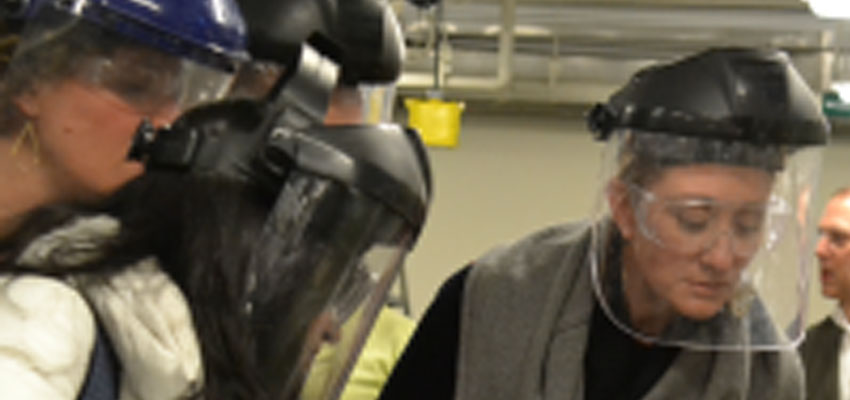
After several months of remote engagement via email and videoconferencing, spirits were high as representatives from the MIT Practical Impact Alliance (PIA) 2015 member organizations arrived at D-Lab the morning of April 10th for their first in-person meeting.
Scheduled on the day prior to the annual MIT Scaling Development Venturesconference, the PIA annual meeting was designed to be the catalyst for ongoing engagement throughout the rest of the year. Through a packed program, participants - who had traveled from locations around the world - were able to dig in to case studies related to the year’s selected Working Group themes, connect with with up-and-coming entrepreneurs supported by the D-Lab Scale-Ups fellowship program, and engage with early-stage MIT student innovators through the IDEAS Global Challenge Innovation Showcase.
In keeping with the MIT mantra of mens et manus, or “mind and hand,” the day began in the D-Lab workshop, with members rolling up their sleeves for a team-building activity that doubled as an introduction to lost-foam casting, a basic manufacturing process particularly useful for prototyping. D-Lab co-directors Amy Smith and Victor Grau Serrat led the activity, with a number of current D-Lab students on hand to assist. After working in teams to build a hot-wire cutter out of a block of wood, welding rods, a drinking straw and a couple of D batteries, participants were asked to get creative. Amy posed the question, “What do you bring to the Practical Impact Alliance?” Participants set to work, figuring out how to represent such things as global distribution channels, manufacturing capabilities, and linkages to diverse operational units with just a few blocks of foam as their canvas and their fresh-made wire cutter as their tool. The resulting foam sculptures, which ranged from highly literal to very abstract, were packed in sand and sent off to the MIT Foundry.
The majority of the day was devoted to PIA’s Working Groups. For each of the four groups (Mobile Phones & Behavior Change, Local Innovation & Co-Creation, Food Loss & Waste, and Base of the Pyramid Distribution), D-Lab facilitators had organized a content-rich session focused around a case presentation that would give participants the opportunity to explore particular challenges and considerations relevant to the group.
In the Mobile Phones & Behavior Change session, PIA member Steve Wardle, vice president for strategic partnerships at the Grameen Foundation, presented the case of mHealth programs leveraging Grameen’s MOTECH platform to share maternal and child health information with patients in Ghana, India, and Nigeria. The case provided the setting for members to discuss the opportunities and challenges offered by the development and use of such platforms, and ways that similar platforms could be leveraged across sectors - from NGO applications such as monitoring health outcomes, to more commercial uses such as marketing for a new product aimed at emerging markets. In addition to PIA members, experts from relevant organizations including J-PAL, Dimagi, and UNICEF were in attendance to offer additional perspective.
Not all case presentations were sourced from PIA members. The Food Loss & Waste session engaged D-Lab Scale-Ups Fellow Carl Jensen, founder of Zasaka, a social enterprise in Zambia that provides a suite of products and services aimed at improving livelihoods for smallholder farmers. Carl’s presentation dug into the post-harvest challenges that farmers face related to loss from damage, mold, or pests, which are inevitably tied to the challenges of securing a lucrative market for farmers’ products. The case presentation allowed PIA members to look at the full value chain and think about possibilities for product and process intervention, while giving Zasaka the opportunity to access the diverse expertise of such organizations as World Vision, Grameen Foundation, and Danone.
As evening approached, the program transitioned from content-heavy workshops to fun. At 5pm, participants were guided to the basement of MIT building 4 for the conclusion of the morning activity in the MIT Foundry. There, they watched up-close as hot liquid aluminum was poured into the packed sand holding their foam sculptures, vaporizing the foam and leaving sturdy aluminum keepsakes in their place. A networking reception on campus offered room to continue conversations with each other and with D-Lab staff, Scale-Ups fellows, and conference speakers, before the whole group headed to the Stata Center to explore students’ prototypes and projects represented in the IDEAS Innovation Showcase.
The following day, as the post Scaling Development Ventures happy hour began to wind down and members began to say goodbye, it was clear that in spite of a tiring couple days, a new energy infused the group. As the PIA Working Groups are defining their plans and goals for the year, there is a clear enthusiasm for the shared learning and collaboration opportunities that the program provides, and a new momentum to carry PIA to its next in-person event - the first PIA Co-Design Summit in Kumasi, Ghana this fall.
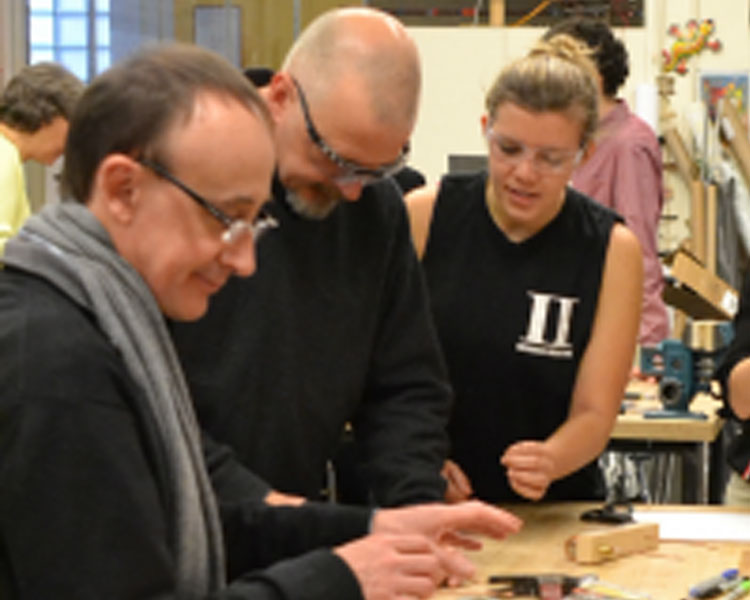
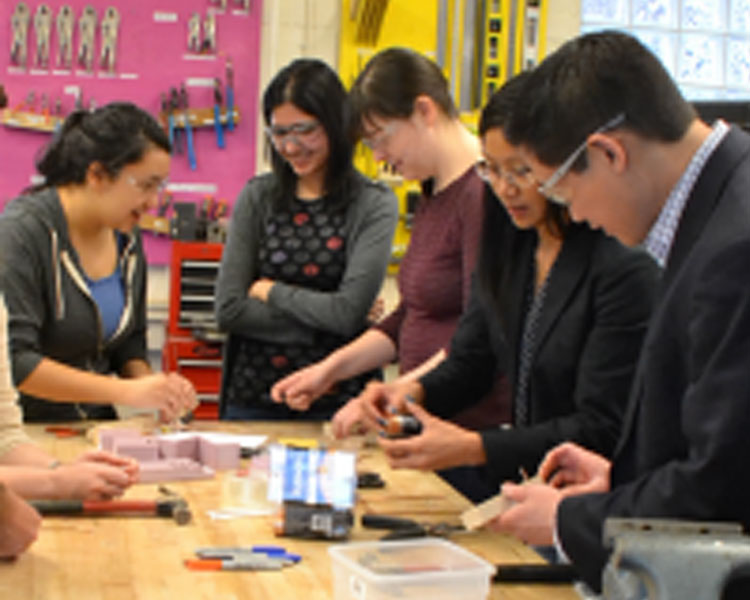
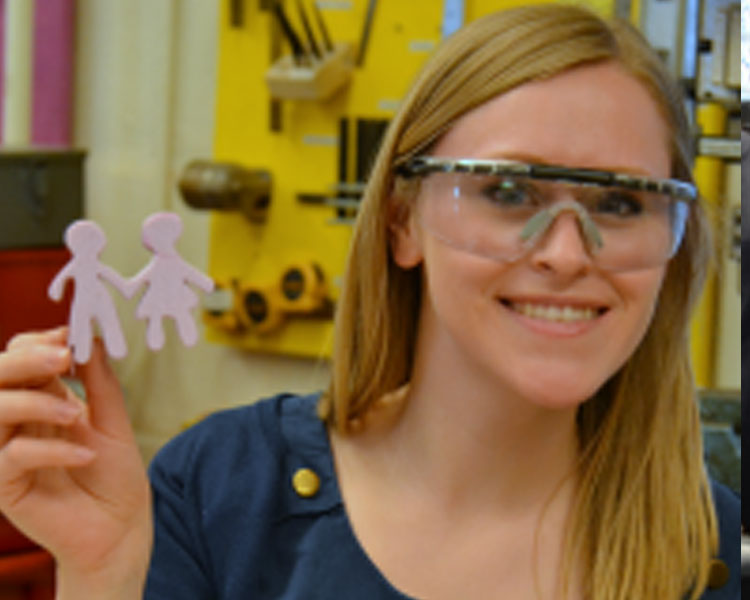
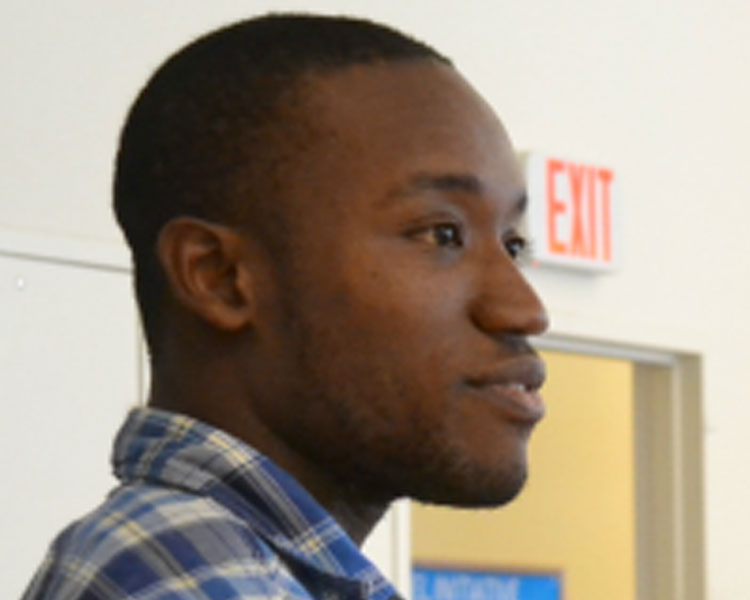
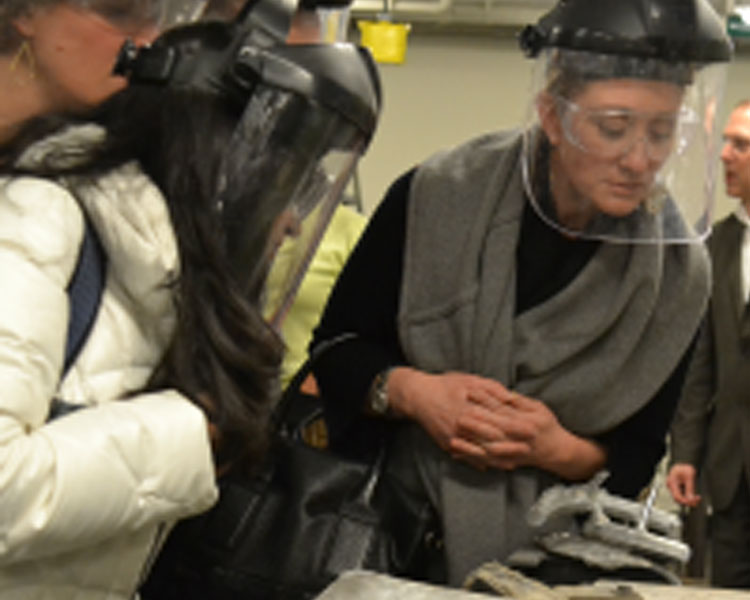
---------------------
Photos: Megha Hegde, Courtesy D-Lab

